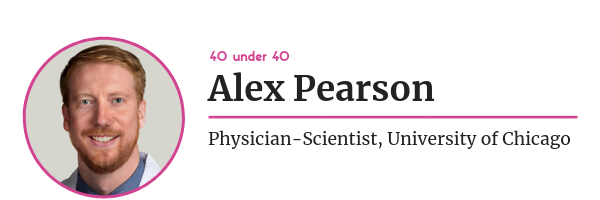Those with experience in both the lab and with patients are the ultimate translational scientists. When not caring for head and neck cancer patients, physician scientist Dr. Alex Pearson runs a research lab where he creates computational models to predict the best course of treatment for patients. View Halo Profile >>
Tell us about your research…
I am a translational physician scientist whose laboratory performs research at the interface of cancer biology, clinical therapeutic development, and computational techniques. My research program seeks to develop new therapeutic options for head and neck cancer patients using iterative mathematical and laboratory experiments.
I am a translational physician scientist whose laboratory performs research at the interface of cancer biology, clinical therapeutic development, and computational techniques.
Can you explain that to a non-scientist?
I try to use mathematical and computer approaches to find better ways to treat head and neck cancer. One relatively unique aspect to my research is that the experiments that I run in my lab are often designed using mathematical approaches. Our goal is to improving the selection, timing, and overall design of cancer treatments using mathematics and statistics.
Our goal is to improving the selection, timing, and overall design of cancer treatments using mathematics and statistics.
How could it someday impact patient lives?
Ultimately, I would like to work towards using mathematical equations to help select or adjust treatments for my patients. This might take the form of computer simulations for a patient’s cancer, or artificial intelligence helping to increase the accuracy of drug treatment. I believe the quantitative sciences have significant untapped potential for helping speed the fight against head and neck cancer, and cancer in general.
I believe the quantitative sciences have significant untapped potential for helping speed the fight against head and neck cancer, and cancer in general.


